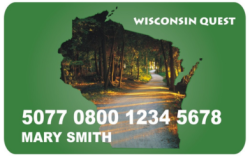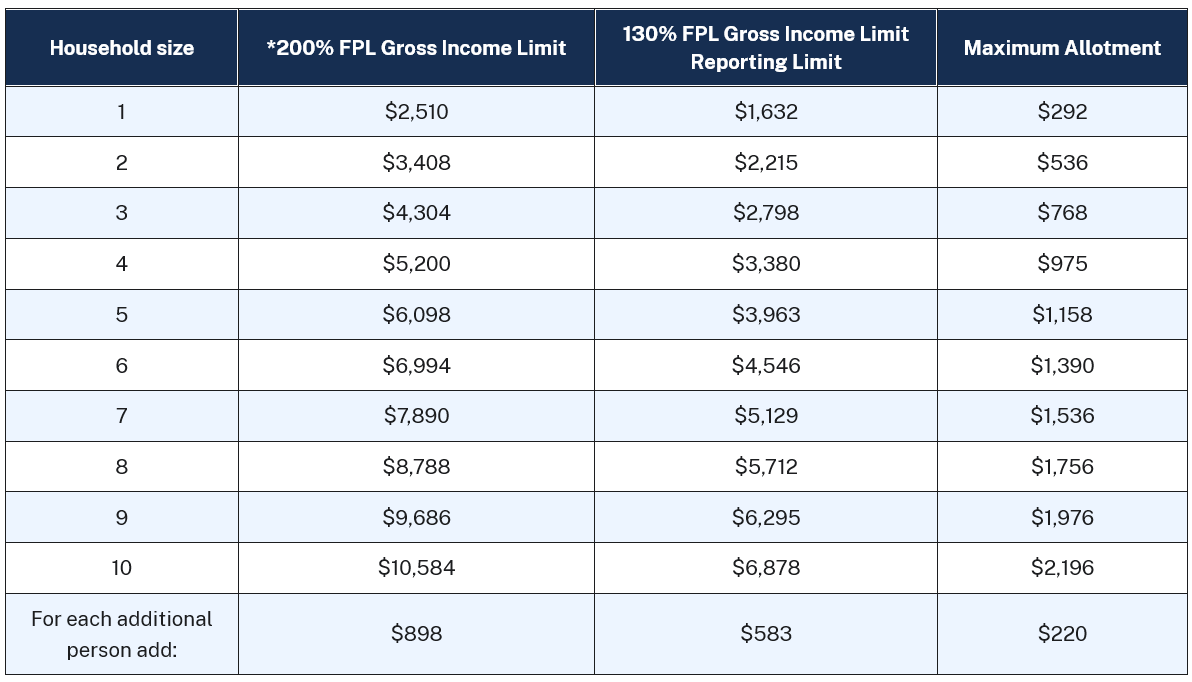Feeding America Eastern Wisconsin supports individuals and families across the state by providing assistance with FoodShare applications and answering questions regarding the program. If you live outside any of the 35 counties in Eastern Wisconsin and need emergency food assistance, please call 211 or visit findhelp.org to explore available resources.
What is FoodShare?
You’ve probably heard of food stamps or SNAP (Supplemental Nutrition Assistance Program). In Wisconsin, the program is called FoodShare. The QUEST card (like a debit card) is a safe and easy way for families to use their benefits. FoodShare benefit dollars are automatically loaded on the QUEST card using an electronic benefits transfer (EBT) system each month.
You can use your FoodShare benefits to buy food at stores, farmers markets, and other places that accept EBT payments. People all over Wisconsin receive help to buy food from FoodShare. People who:
- Have low-income jobs
- Live on a small or fixed income
- Are retired
- Have lost their jobs
- Are disabled and can’t work
 To find out if you may be eligible for FoodShare, you can:
To find out if you may be eligible for FoodShare, you can:
- Call the toll-free FoodShare Helpline at 1.877.366.3635
- Send an email to [email protected]
- Submit an application online through Wisconsin Department of Health Services HERE
Feeding America Eastern Wisconsin is a partner agency of the Wisconsin Department of Health Services. You can apply for FoodShare directly through the State of Wisconsin, or you can request one of our staff personally assist you with the process.
What we can do:
- Assist with FoodShare applications or renewals (typically over the phone or online)
- Help submit documents for an application, renewal, or to update your case
- Connect with other resources and our food pantry network
What we can’t do:
- Can not directly access information related to your case
- Can not report changes to your case, determine the amount of FoodShare you may qualify for, or share your personal information
Helpful Food Resources
- Food Programs page – Feeding America Eastern Wisconsin
- FoodShare News and Updates – Wisconsin Department of Health Services
- Food Pantry Locator – Feeding America Eastern Wisconsin
- Upcoming Mobile Pantries – Feeding America Eastern Wisconsin
- Programs and Initiatives – Feeding America Eastern Wisconsin
In accordance with Federal civil rights law and U.S. Department of Agriculture (USDA) civil rights regulations and policies, the USDA, its Agencies, offices, and employees, and institutions participating in or administering USDA programs are prohibited from discriminating based on race, color, national origin, sex, religious creed, disability, age, political beliefs, or reprisal or retaliation for prior civil rights activity in any program or activity conducted or funded by USDA. Persons with disabilities who require alternative means of communication for program information (e.g. Braille, large print, audiotape, American Sign Language, etc.), should contact the Agency (State or local) where they applied for benefits. Individuals who are deaf, hard of hearing or have speech disabilities may contact USDA through the Federal Relay Service at (800) 877-8339. Additionally, program information may be made available in languages other than English. To file a program complaint of discrimination, complete the USDA Program Discrimination Complaint Form, (AD-3027) found online at: http://www.ascr.usda.gov/complaint_filing_cust.html, and at any USDA office, or write a letter addressed to USDA and provide in the letter all of the information requested in the form. To request a copy of the complaint form, call (866) 632-9992. Submit your completed form or letter to USDA by: (1) mail: U.S. Department of Agriculture. Office of the Assistant Secretary for Civil Rights. 1400 Independence Avenue, SW. Washington, D.C. 20250-9410; (2) fax: (202) 690-7442; or (3) email: [email protected]. This institution is an equal opportunity provider. This project has been funded at least in part with Federal funds from the U.S. Department of Agriculture. The contents of this publication do not necessarily reflect the view or policies of the U.S. Department of Agriculture, nor does mention of trade names, commercial products, or organizations imply endorsement by the U.S. Government.
 *If your family’s gross monthly income is at or below 200% of the federal poverty level (FPL), it passes the Gross Income Test. Your family can earn certain credits to be subtracted from your gross income. Learn more about credits and how your benefits are calculated in the
*If your family’s gross monthly income is at or below 200% of the federal poverty level (FPL), it passes the Gross Income Test. Your family can earn certain credits to be subtracted from your gross income. Learn more about credits and how your benefits are calculated in the 